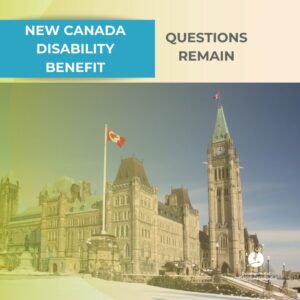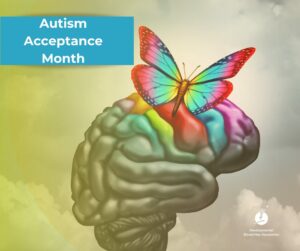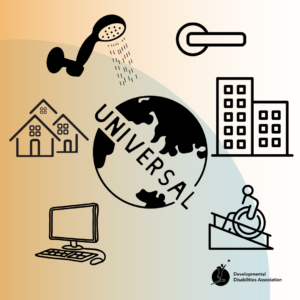2021 is slowly coming back to life for everyone after COVID-19 changed everything last year.
DDA’s Executive Director, Alanna Hendren, hopes we can learn something from the pandemic.
After over one year of COVID’s rampage through the human populations of the world and its continuing
devastation during the race to vaccinate the world, summer is here again. With only about 10% of the global population now vaccinated, we are very lucky to have received our ‘jabs’ at DDA. We are very grateful that within one year after COVID-19’s arrival, most of us will be freed from the worry of getting sick or dying. Vaccines usually take ten years to develop, so this is a tribute to the scientists and physicians working to combat this deadly contagion.
COVID highlighted the failure of neoliberal, or ‘trickle down’ economic theories (adopted by most governments in the world since the 1980’s) to protect us from pandemics or deal with the catastrophic toll the virus has taken on humans throughout the world. Under the guise of keeping taxes low and minimizing the role of the government in the lives of citizens, Canada and the U.S. both eliminated their epidemic early warning systems. As reported by the Globe and Mail’s Grant Robertson on July 25, 2020, Canada’s Global Public Health Intelligence Network (GPHIN) issued its last warning on May 24, 2019. This Network was highly effective at spotting pandemics very early on – H1N1, MERS, Ebola – and reporting them to the World Health Organization so nations could quickly develop prevention strategies and stop contagions before they spread.
The Canadian government had this team of 12 analysts capable of identifying the COVID pandemic early but redeployed them within the Public Health department so no one was tracking international disease outbreaks. The electronic data-tracking system this team developed was so impressive that Google wanted to buy it. Still, the federal government decided that the GPHIN’s work was too internationally focussed and not a good use of funding.
The notion that governments are the enemies of private enterprise (due to their imposition of taxes and corporate regulations) that interfere in the lives of their people (by making them pay taxes and passing freedom-limiting laws and regulations) was based on an ethos of competitive individualism (liberated capital). Low taxation meant there was no funding to support the ‘social welfare state’ that had characterized government policies in capitalist countries since World War II. Rather than allowing that some people required assistance to live in modern societies, ‘trickle-down’ policies were based on the naïve assumption that humans were responsible for their own lives and these lives were the sum of the choices that individuals had made. Choice became synonymous with freedom and the individual became the key unit of society.
Cooperative endeavors that benefitted all Americans or Canadians hinted at ‘socialism’. When communism fell apart in Russia and the old Eastern Bloc, proponents of rugged individualism, ‘freedom’ and competition promoted the idea that the end of communism was proof that governments did not work when they became too involved in the economy or used tax revenue for the benefit of the people. Corporation-backed Think Tanks like the Fraser Institute in B.C. held to the principle of ‘moral hazard’, which basically warned that, if governments or others help people in times of peril, these people will not learn how to help themselves and will always depend on the government or whoever was helping them. This idea was used to justify cutting social programs throughout most of the world. People who did not agree with the idea of governments abandoning their previous responsibilities for their citizens were labelled ‘socialists’ as if they were promoting the Communist Manifesto or the sayings of Chairman Mao. The corporate sector knew best and the goal of monetizing everything extended to monetizing people.
The budget for Canada’s pandemic surveillance and pandemic early warning system was $2.8 million per year, including the salaries of the 12-member team of scientists and doctors who analyzed the data and warned the world about emerging epidemics. Bureaucrats said: “We need to focus on Canada”, not on the international community. Our early warning system was cut.
Although this political decision was made by a Liberal government, political interference in our health systems started under the Conservatives in 2014. They reduced the powers of Canada’s Chief Public Health Officer, took over the department’s budgets, assumed control over staffing and introduced more levels of bureaucratic management, thereby reducing the influence of politically motivated scientists in favor of meeting political objectives. New senior bureaucrats did not understand urgent public health matters because they came from other government departments and weren’t much interested in prevention. In place of scientific monitoring or warnings, the global mainstream and social media brought attention to this new lethal virus emerging from China, catching most governments off guard and in denial. Well into March 2020, Canadian officials apparently saw no link between the outbreak in Wuhan and any risk to Canadians even though hundreds of flights from China and around the world continued to arrive in Vancouver and other airports daily. Although China closed down for the Lunar New Year in 2020, many potential carriers had already left the country. Canadian politicians downplayed the risks, even though the scientists who used to work for the GPHIN were trying to sound alarms.
On November 30, 2020, the federal government provided a fiscal update, committing $322.3 billion to fight the COVID pandemic and its horrible economic consequences, increasing the federal budget deficit to over $381 billion. Provinces also spent hundreds of millions of dollars in COVID payments and health costs – COVID hospitalizations cost four times the average for other conditions. Canadians lost businesses, jobs, family members and friends. Their children lost their ability to go to school.
All for the sake of saving $2.8 million dollars.
And where was the corporate sector? Asking the government to bail them out. What about moral hazard? As we learned in 2008, it seems that applies only to people, not to banks or corporations, who are Too Big To Fail.
On April 28, 2021, U.S. President Joe Biden announced that “Trickle-down economics never worked”, signalling a return to the idea of governments as servants to their people. We have recently seen a return to this idea in British Columbia and can only hope that the lessons of COVID will hasten a return to collective action and a focus on the well-being of citizens. Corporations exist to produce a profit and there is nothing wrong with that, as long as our governments do their part by benefiting and protecting their people.
In the case of COVID, the benefit of cutting $2.8 million will cost Canadians in excess of $380 billion – who knows what the final damage might be? – in addition to lost jobs, lost revenue, lost lives, social isolation, growing xenophobia, on and on. All of us have paid a price.
Human beings have not survived this long by going it on their own and tearing each other apart. We survived as a species by cooperating toward common goals, not by gaming the system for our personal benefit. ‘Trickle-down economics’ have never worked, unless you are on the very top. We need a new economic ethos that works for people and our planet or our extinction may very well be close at hand.



